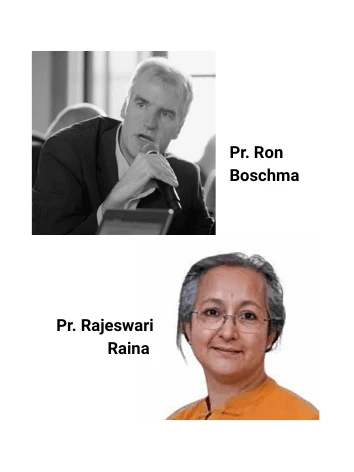
UNESCO Bernard Maris Chair
To bring the thought of Bernard Maris to life, to nurture pluralism, to practice interdisciplinarity.
Scientific activity of the Chair
The aim of the international chair of citizen economists at Sciences Po Toulouse is to promote a pluralist and contextualised economy at the service of living beings.
A well-known economist, author, essayist and journalist, Bernard Maris was cowardly murdered in the attack on Charlie l'Hebdo on 7 January 2015. A pupil at the Lycée Pierre-de-Fermat and then a graduate of Sciences Po Toulouse in 1968, Bernard Maris obtained a doctorate in economics from the Université Toulouse 1 in 1975 and was recruited as a lecturer there in 1984. He became a university professor at Sciences Po Toulouse in 1994. He is internationally renowned for his criticism of mathematical economics, which is too far removed from the other human and social sciences and the concerns of the general public. His books, radio columns and satirical articles in Charlie Hebdo (Oncle Bernard) have left their mark on generations of citizens and students.
As a tribute to this free and committed spirit, the Bernard Maris Chair proposes a socio-economic approach to societal change in the face of crises, ruptures and transitions, in their geo-political, humanitarian, climatic, environmental, technological and organisational dimensions.
The chair team is made up of around fifteen researchers and teacher-researchers in the social sciences (institutional economics, geographic economics, innovation economics, legal economics and management) and two full professors.
Ron Boschma, Professor of Economic Geography at Utrecht University and recipient of the 2024 Vautrin-Lud Prize, has been holder of the Chair since 2018. In 2025, Professor Rajeswari Raina (Shiv Nadar University (IoE, India), an institutional ecological economist and recipient of the 2018 T. N. Khoshoo Prize, will in turn become co-holder of the Chair. True to its mission, the Chair has welcomed leading scholars in the social sciences and developed research on the drivers of regional development.
The Chair team is currently developing an ambitious work programme for the 2025-2029 quadrennium. In theoretical terms, the team is working on a position paper on institutional change, its driving forces and its role in societal transitions. In addition, 4 empirical themes will be investigated in partnership with regional and departmental public players and civil society: i) green innovations and territorial autonomy; ii) agro-ecological transitions; iii) resource governance and the dynamics of the commons; iv) green money and finance.
Support for stakeholders and training
In line with UNESCO's philosophy, which favours dialogue, intellectual solidarity and mutual understanding, participatory research involving stakeholders from the formulation of problems and promoting the co-production of knowledge, rules and solutions will be encouraged.
Biannual highlights in line with UNESCO's priorities
Grouping the Chair's events into two annual highlights (one week in November and one in March), with cross-fertilisation of audiences (researchers, students, economic players and the public), will enhance the Chair's visibility and impact. Consistency with the United Nations Years Programme will also be sought. For example, in 2025, we will be exploring the links between technologies, the circular economy and cooperation, and in 2026, an ‘agroecology and pastoralism’ event will be organised.
Workshops and methodology for the co-design of sustainable production activities
One day a week will be devoted to co-design workshops bringing together researchers, public-sector players, the economy and civil society, co-defined with the help of a mediator. The aim of these workshops will be to create a common ground, define a joint work plan and test different co-creation formulas. Progress will be presented at each Chair week. Over the course of the four-year period, they will help to create a toolbox that can be adapted and disseminated to other regions, in France and internationally.
Disseminating and teaching economic sciences
The various events organised by the Chair provide an opportunity to produce teaching resources and materials that can be made available online (Youtube channel and the Chair's website). The Chair will also be extending its support for the reflective activity of secondary school economics teachers (partnership with APSES), extending it to agricultural secondary schools (via ENSFEA) and opening it up to establishments in the South. The aim is to organise training courses, study days, conferences and writing residencies on the teaching of political economy and education for the ecological transition.
Ajouter un paragraphe ici.
Bernard Maris, mainstream economics critic
Born in Toulouse in 1946, Bernard Maris was one of the protagonists of French intellectual life at the end of the 20th century and the beginning of the 21st century. Recognized economist, scholar, writer, essayist, journalist, he was assassinated in Paris on January 7, 2015 in the attack on the satirical magazine Charlie Hebdo, of which he was one of the editors and shareholders. A look back at a striking and atypical personality of contemporary thought, tireless slayer of the deceptions of the dominant economy (mainstream).
Although his international notoriety has been compromised by the inaccessibility of his writings to non-French speakers, Bernard Maris remains one of the most original intellectuals of contemporary France. An actor and thinker of his time, he tirelessly devoted himself to participating in the indispensable examination of ideas, institutions, practices and discourses.
Its protean production is characterized by the systematic deployment of a fine critical mind, always accompanied by strong proposals. It leaves us as a legacy a powerful critique of the economist's postulate of axiological neutrality: the so-called "hard science" that the dominant standard economy claims to be was, for him, only a rhetorical discourse masking the relationships of real power.
Clic here to learn more about the biographical elements of Bernard Maris.
© 2021 UNESCO Bernard Maris Chair all right reserved. Website made by Studio Gâchette

